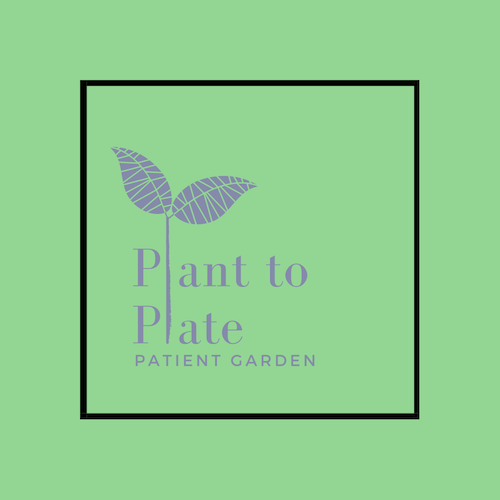Dissolving the old myths behind FOOD, GOUT, DIET, and KIDNEYS
by Dr. Jenneffer Pulapaka, DPM
Does food matter when it comes to kidney function and gout? Yes, and not by just reducing the amount of protein consumed, but improvement is achieved through eating fruits and vegetables. In a recently published 2019 journal study, researchers evaluated the dietary findings of almost 18000 people over 8+ years. The results determined that plant-based diets have a positive effect, through uric acid reduction and anti-inflammation pathways, to relieve the symptoms of gout and improve the associated gout comorbidities. They found lacto-ovo vegetarians had the lowest uric acid concentration, followed by vegans AND they also experienced a lower risk of gout. 1

A meta-analysis and systematic review in Asia Pac J Clin Nutr 2018, determined the dietary factors and risk of gout and hyperuricemia. Red meat, seafoods, fructose, and alcohol increase the risk of hyperuricemia and gout. On the contrary, consumption of soy foods decreases the risk of hyperuricemia and gout. Purine-rich vegetables may even exert protecting effect on hyperuricemia risk. Their findings are in agreement with several recent population-based epidemiologic studies that also found no association between high-purine vegetables and the risk of gout and hyperuricemia. This phenomenon might be, in part, explained by the variant bioavailability of purines from different dietary source.
Opposed to the popular belief, this study verified that purine-rich vegetables (cauliflower, spinach, peas, beans, mushrooms, lentil, etc) was not correlated with gout risk, and further, was associated with a lowered risk of hyperuricemia. So, getting ahold of your gout and painful gout attacks may be as simple as changing to a mostly plant-based diet. 2
VIDEO: Preventing gout attacks with diet
Another study noted similar results showing obesity, meat and seafood intake, and alcohol consumption are associated with a higher prevalence of hyperuricemia, whereas daily physical activity is inversely related to the prevalence of hyperuricemia.
A 2012 study determined that a patient’s non-vegetarian diet was risk factoring of developing gout and hyperuricemia. Low-fat dairy products, purine-rich vegetables, whole grains, nuts and legumes, and less sugary fruits, coffee and vitamin C supplements decrease the risk, whereas intake of red meat, fructose-containing beverages and alcohol increase the risk of gout. 3
Numerous findings back up a 2011 study that showed: a positive association between protein from animal sources and prevalence of hyperuricemia and an inverse association between protein from plant sources and hyperuricemia. This study found a direct association between seafood consumption and hyperuricemia and an inverse association between consumption of soy food and hyperuricemia. 4
There is a correlation between diet and urate transporters dysfunction in gout/hyperuricemia. Reduced renal excretion of urate is the underlying hyperuricemic mechanism in the vast majority of gout patients. The prevalence of renal comorbidities in gout – hypertension, chronic kidney disease (CKD), and nephrolithiasis – is very high. More than 80% of patients with hyperlipidemia suffer from hyperuricemia. 85% of patients on an omnivorous Western Diet (WD) have a decrease in uric acid excretion and concentration in urinary pH value. The ingestion of a vegetarian diet led to a significant reduction in the risk of uric acid crystallization by 93% compared to diet WD. 5
When obese patients are in a state of hungry and tired, the body will utilize the accumulated fat to produce heat to provide the body’s needs. However, at the same time, ketone bodies produced by the breakdown of body fat interferes with the excretion of serum uric acid, causing an additional, indirect, increasing the level of uric acid. Several studies have also demonstrated that higher serum urate acid concentration is linked to type II diabetes and metabolic syndrome. Elevated blood glucose level can decrease the ability of urate transporter, further worsening the hyperuricemia, and resulting in renal dysfunction. 6
A diet rich in fruits and vegetables instead of bicarbonate therapy is feasible and economical and appears to have a positive effect on kidney hemodynamic function. 7 The data indicate that fruits and vegetables improve metabolic acidosis and reduce kidney injury in stage 4 CKD without producing hyperkalemia. 8
CONCLUSION:
Medical practitioners need to do better at due diligence. They need to stay current and investigate new and emerging research. These results indicate that the old “low-purine” diets are antiquated and are not capable of producing positive patient outcomes. A balanced vegetarian diet with grains, soy, legumes, high alkali fruits and vegetables, and adequate fluid intake results in the lowest risk of uric acid crystallization and kidney dysfunction compared to the omnivorous WD diets. Diet alone can provide a novel strategy to treat hyperuricemia, and associated diseases, such as gout, chronic kidney disease, hyperlipidemia, hypertension, coronary heart disease, diabetes, and other disorders.
References:
- Clin Nutr. 2019 Mar 27. pii: S0261-5614(19)30129-3. doi: 10.1016/j.clnu.2019.03.016. Vegetarian diet and risk of gout in two separate prospective cohort studies.
- Asia Pac J Clin Nutr. 2018;27(6):1344-1356. doi: 10.6133/apjcn.201811_27(6).0022. Dietary factors and risk of gout and hyperuricemia: a meta-analysis and systematic review.
- Int J Rheum Dis. 2012 Dec;15(6):499-506. doi: 10.1111/1756-185X.12010. Epub 2012 Oct 22.
- Nutr Metab Cardiovasc Dis. 2012 May;22(5):409-16. doi: 10.1016/j.numecd.2010.07.012. Epub 2011 Jan 28. Purine-rich foods, protein intake, and the prevalence of hyperuricemia: the Shanghai Men’s Health Study.
- Eur J Nutr. 2003 Dec;42(6):332-7. The effect of a vegetarian and different omnivorous diets on urinary risk factors for uric acid stone formation.
- 2017 Nov 21; 8(59): 100852–100862. Published online 2017 Aug 10. doi: 10.18632/oncotarget.20135. PMCID: PMC5725069. Recent advances on uric acid transporters
- Kidney Int. 2014 Nov;86(5):1031-8. doi: 10.1038/ki.2014.83. Epub 2014 Apr 2. Treatment of metabolic acidosis in patients with stage 3 chronic kidney disease with fruits and vegetables or oral bicarbonate reduces urine angiotensinogen and preserves glomerular filtration rate.
- Clin J Am Soc Nephrol. 2013 Mar;8(3):371-81. doi: 10.2215/CJN.02430312. Epub 2013 Feb 7. A comparison of treating metabolic acidosis in CKD stage 4 hypertensive kidney disease with fruits and vegetables or sodium bicarbonate.

Recent Comments